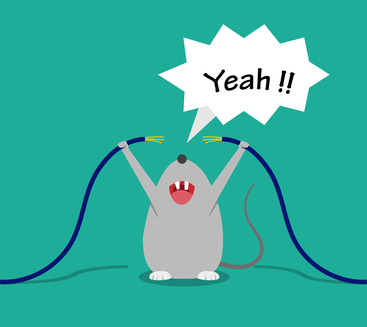These Signs Show That You’ve Got Rodents In Your Car
- Esther M.
- May-26-2021
- Pest Control
In Eastern Australia, the tailed army (of mice) is causing damage to homes and farms stretching over a distance of 1000 miles. The damages to goods and property are estimated to be worth over $100million and sadly no one can tell how long this pain to the residents will last. Why?
The mice are everywhere in bedrooms, hotels, supermarkets, cars, even in tanks. Name a space and they are there. And similarly, back home in Maryland, though not to that scale, rodents are pretty much everywhere. But a space many don’t check is their car. But how do you know this pest is in your car?
#1: When you find consistent bad smells in your car

When rats get into a space they leave urine and droppings everywhere. It only becomes a matter of time before the smell gets to the whole space. All this combined with their unpleasant body odor. If you get into your car and you can’t explain where this smell is coming from, it may be rodents.
If you detect foul odors coming from your car, it may be due to a pest problem. Often, drivers will first detect these smells coming from the vehicle’s air vents. Mice can use the vent system as a tunnel to get from the engine bay to your car’s interior. And vents often provide easy access to insulation and filter materials they can use to build a nest. Over time, a musty odor can develop from mouse urine (gross, we know). And if the smell is really bad, there’s a chance the rodent may have died inside. Read more from Erie Insurance…
#2: When you find a nest in your car

Rodents like rats love warm spaces and they can generally squeeze through to very tiny spaces. This makes the airbox a common nesting place for rats and mice. They love it because it is warm and well hidden in the hood. So, combined with the bad odor, this is a good starting place to confirm your fears.
Your mouse may be nesting in the box that houses the vehicle’s air filter, which for a rodent is a warm and protected spot in which to reside. You can inspect this space by removing the top, which is usually affixed by a pair of clips. Also check under the plastic engine cover if your car is so equipped. Look beneath the seats and inspect your vehicle’s cabin air filter behind the dashboard as well. Depending on where the nest is located it could present a fire hazard. Read more from Forbes…
To prevent nesting in your car, you can keep your car away from a food source like a dumpster. Leave your hood open (if it’s in a secure space) and light up your garage. Rodents love dark spaces.
#3: When you find your wires have been chewed up

Rats have incisors that grow continuously. This makes them gnaw on all kinds of objects to prevent them from becoming excessively long. The danger for you is that they don’t care what they chew. To them, anything is a tooth shortening tool, sadly even your car wires.
In reality, the chance of rats causing a car fire is quite small, but unwelcome chewing is all but guaranteed. Rats’ teeth grow continuously their whole lives, and they’re genetically predisposed to constant chewing — even when not eating — to keep their teeth short and sharp. Automotive electrical wiring provides the perfect combination of firm but squishy protective coverings wrapped around hard metal wires within. Rats sharpen their teeth by chewing on things such as rocks and trees in the wild, but wires are a perfectly acceptable substitute in their oral health regimen. Read more from Cheapism…
The solution is to use anti-rodent tape on your wires or to block out any entry points to your car hood. The tape has an unpleasant chemical found in hot pepper. This should scare the rodents away, and the wire mesh is helpful as it allows air through it.
The thing is if you find out there are rodents please don’t use poison. You don’t want an even worse smell emanating from an unknown location in your car. A safer option is to call in an expert like Backyard Bug Patrol for us to assess the situation and to provide a remedy. You never go wrong with bringing in professionals in rodent control. Try us today!
